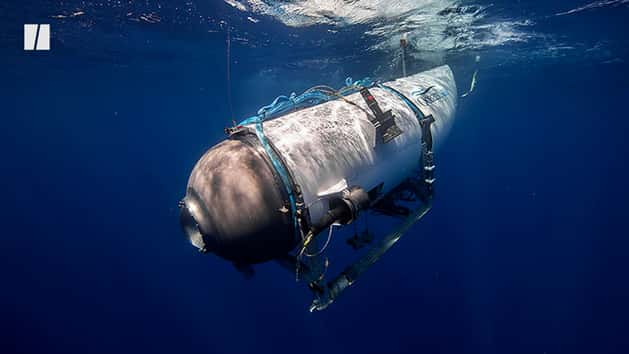The US Coast Guard announced on Sunday that it has launched an investigation into last week’s loss of the Titan submersible, which imploded on a passenger trip to view the wreckage of the Titanic at the bottom of the Atlantic Ocean.
The Coast Guard said it’s convened a Marine Board of Investigation ― the agency’s highest level of investigation ― to look into what happened. The probe will seek to determine the exact cause of death of the five submersible passengers and whether anyone committed an “act of misconduct, incompetence, negligence, unskillfulness, or wilful violation of law” that contributed to their deaths.
The probe will also look into whether there is a “need for new laws or regulations, or amendment or repeal of existing laws or regulations, to prevent the recurrence of the casualty.”
The Coast Guard’s investigation is being carried out in “close coordination” with the US National Transportation Safety Board and its counterparts in Canada, France and the United Kingdom.

It’s possible that OceanGate Expeditions, the company that built and operated the Titan submersible, overlooked some safety issues with the vessel. According to court documents obtained by CBS News last week, a former employee filed a complaint in 2018 alleging he was fired for expressing concerns about the safety of the vessel’s hull, which was made with carbon fibre and other experimental materials.
Experts have also spoken out about the use of carbon fibre, a relatively new material for submersible use, in the wake of the tragedy. Bart Kemper, a mechanical engineer and member of the Marine Technology Society, told NBC News that the organisation confronted OceanGate’s CEO, Stockton Rush, with concerns about the use of carbon fibre. But Rush, who died in the implosion with four other passengers, “would not budge,” Kemper said.
Previous passengers of the Titan, which had only done two previous voyages to the Titanic wreckage, also spoke out last week about problems they encountered with the submersible’s propulsion system and communications with those above the ocean’s surface.
“I 100% knew this was going to happen,” Brian Weed, a camera operator for the Discovery Channel’s “Expedition Unknown” show, told The Associated Press. Weed embarked on a Titan test dive two years ago in Washington state’s Puget Sound.

